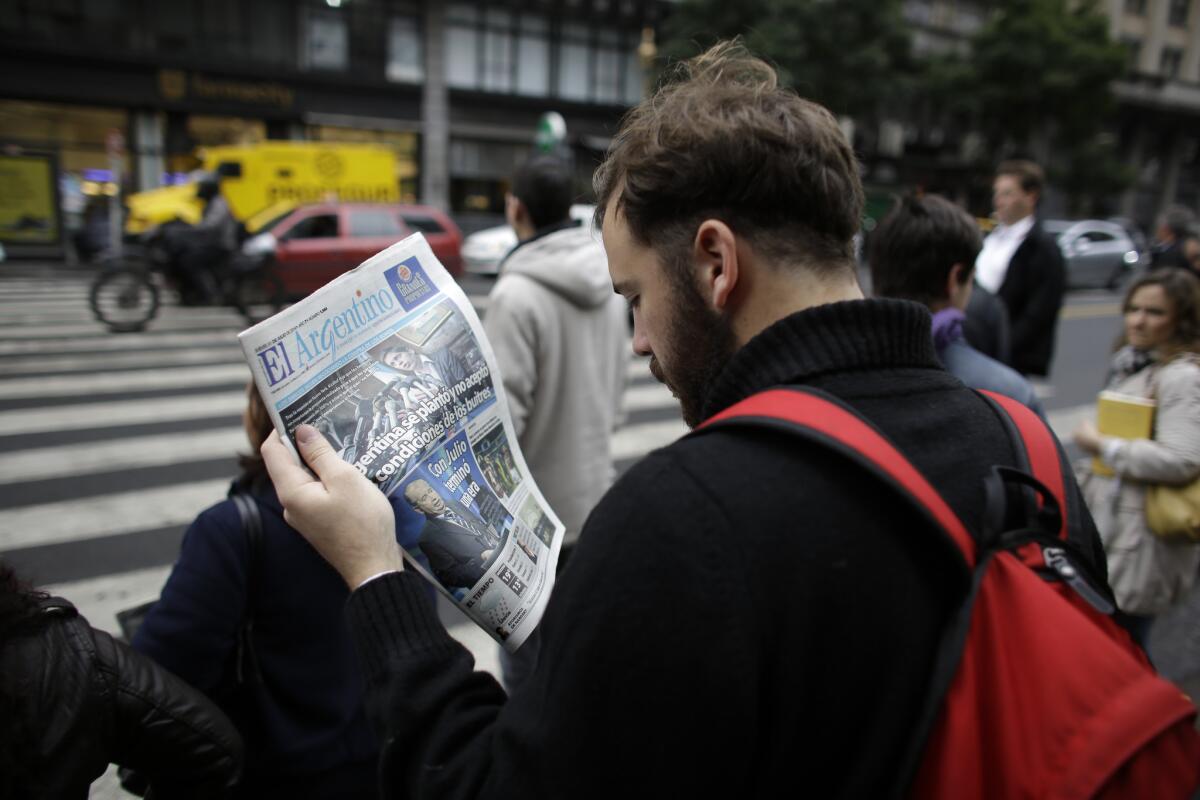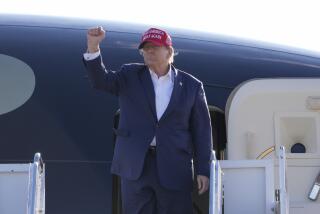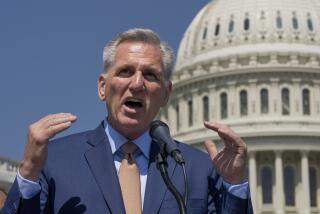Argentina defaults on international debt, blames U.S.

- Share via
Reporting from Buenos Aires — Argentina’s bonds and stocks fell sharply in trading Thursday as the country slid into default on its international debt for the second time in 13 years.
As eleventh hour negotiations between government negotiators and “vulture” funds holding bonds foundered Wednesday night, bond rater Standard & Poor’s declared the country to be in “selective default.”
Economists feared the immediate consequences would be a spike in already-double digit inflation and more austerity in a troubled economy.
“If the default is prolonged, the negative consequences internally and externally will accelerate,” said Daniel Artana, an economist with a Buenos Aires think tank known by its Spanish initials FIEL.
Downgrades of Argentine debt will ripple throughout the country, affecting the cost of borrowing for local governments as well as the national administration, he warned.
In his daily news conference in Buenos Aires on Thursday, President Cristina Fernandez’ cabinet chief, Jorge Capitanich, blamed the United States and said his country may resort to the International Court of Justice at the Hague or the United Nations.
“This is the fault of the United States for not acting properly,” Capitanich said. “This is a shame.”
The Fernandez government had warned that a default was unavoidable after the U.S. Supreme Court in June upheld a lower court ruling that Argentina owed full payment to hold-out bondholders who refused to accept discounts in earlier restructurings of debt after a 2001 default.
On Wednesday, a group of Argentine bankers tried without success to negotiate directly with the bondholders, who are led by New York-based Elliott Management. Those talks are continuing, with assists from “international mediators,” according to Argentine news reports.
Economists said the elevated costs of borrowing faced by government will come at a time when it has already been hit by the declining prices of agricultural exports, including soy, its biggest generator of foreign exchange. Artana said the default comes as the country was trying to win back confidence on international markets.
After the 2001 default, Argentina experienced a sharp devaluation, failure of the banking system, extensive unemployment and an economic collapse. Recovery took years.
Analysts don’t expect that sort of collapse this time around, mainly because the banking system is sound. But foreign investment has dropped off and inflation has soared, partly because the currency, the peso, has steadily devalued against the dollar, increasing the cost of imported goods and services.
After attending hours-long meetings Thursday in New York with holdout bondholders, economy minister Axel Kicillof accused U.S. District Judge Thomas Griesa of creating a “judicial puzzle” when he ruled earlier this year that Argentina could not pay bondholders who agreed to discounts in 2005 and 2010 unless it paid the vulture funds at the same time.
Mediator Daniel Pollack issued a news release late Wednesday after day-long talks, saying a default would be a “real and painful fact that would do damage to real people [including] ordinary Argentina citizens.”
One of the hold-out funds, NML, issued a statement saying that Pollack had proposed “numerous creative solutions many of which were acceptable to us. Argentina refused to consider any of them and chose to default.”
Special correspondents D’Alessandro and Kraul reported from Buenos Aires and Ottawa respectively.
More to Read
Sign up for Essential California
The most important California stories and recommendations in your inbox every morning.
You may occasionally receive promotional content from the Los Angeles Times.












